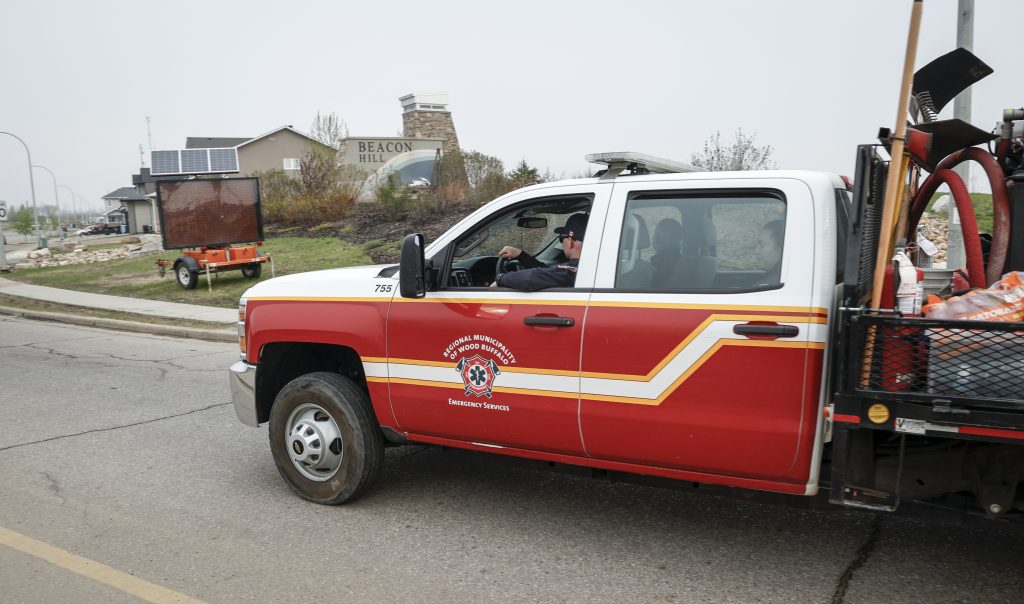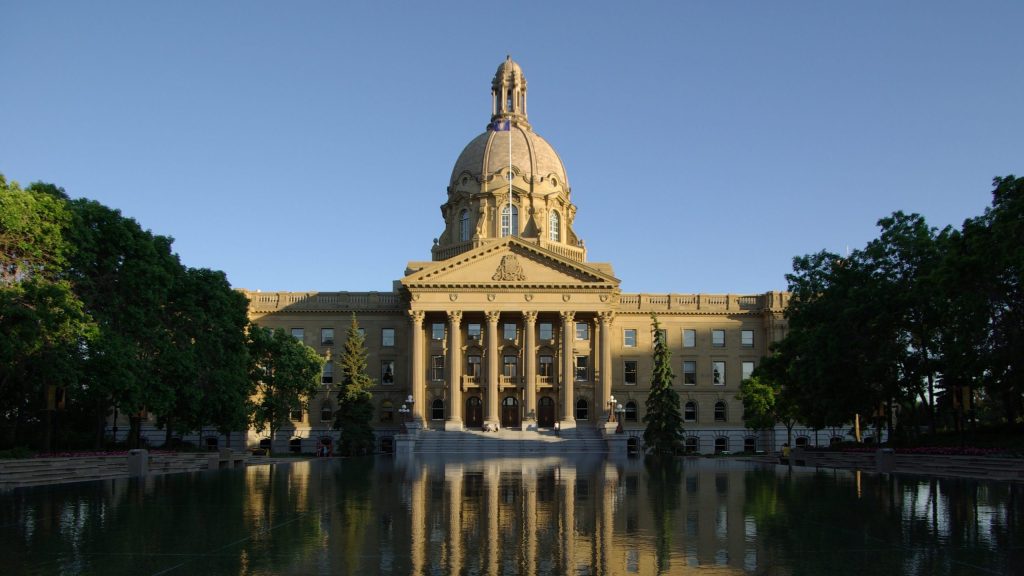Olympic Vote: Everything you need to know
Posted Nov 12, 2018 8:03 pm.
Last Updated Nov 13, 2018 7:52 pm.
This article is more than 5 years old.
CALGARY – Decision day has arrived in Calgary and it’s the everyday-Calgarian’s turn to have a say in a matter that would undoubtedly shape the future of the city–for better or for worse.
Over 50,000 people voted in the advance polls last week and a new poll suggests half of Calgarians are voting against the bid, with 10 per cent still undecided.
READ MORE: Where do I go to vote in the Olympic Plebiscite?
If you’re still not sure which little box to check on the ballot that reads “Are you for or are you against Calgary hosting the 2026 Olympic and Paralympic Winter Games?” here are some notes to help make your decision an informed one.
Money: What’s the price tag and where is the cash coming from?
The bid deal that’s on the table now, after much drama at city hall, is a “good one” according to Calgary Mayor Naheed Nenshi. The bill for the city is sitting at $390 million (plus $150 million credit for previous financial commitments to improve a downtown district that would be a games hub) before any potential cost overruns, something the ‘no’ side has maintained is “inevitable” and will ultimately fall to taxpaying Calgarians.
The Canadian Taxpayers Federation (CTF) has estimated that each Calgary household will end up paying around $2,000 to host the games.
READ MORE: Calgary 2026 Bid Corporation responds to CTF estimates to host the Olympics
Premier Rachel Notley said her government will dedicate $700 million; the federal government has said it will commit $1.45 billion; the Town of Canmore is covering $3 million. The IOC, which visited the city last month to make its pitch to Calgarians, said it will contribute $1.2 billion and not a penny more. Private sector sponsorships and donations are expected to cover the remaining $2.2 billion.
READ MORE: A cost breakdown of Calgary hosting 2026 Winter Games should city bid and win
Total estimated cost: $5.1 billion.
Venues: Which cities will be hosting events?
The towns of Canmore and Whistler, B.C. have been included in Calgary’s 2026 Olympic bid plans. Whistler would host ski jumping events, alleviating a need for Calgary to erect new Olympic-height ski jumps at COP. The ‘yes’ side says using facilities left over from the Vancouver 2010 games is saving the city some $70 million in would-be costs.
READ MORE: Canmore moves ahead with Olympic process, but with conditions
Canmore would host a handful of other Nordic events including cross-country skiing and biathlon; snowboarding and alpine skiing events would be held in Kananaskis.
Whistler isn’t paying into the $5.1-billion pot, something the ‘no’ side doesn’t like if the city is sharing events. The ‘yes’ side argued Whistler would be doing Calgary a favour by hosting ski jumping. Banff was not included in the bid, at the request of the national park.
As far as venues in Calgary go, a number would be upgraded. Many of Calgary’s sporting facilities–including the Scotiabank Saddledome, Olympic Oval, WinSport’s sliding track and ski hill, Nakiska Ski Resort, Canmore Nordic Centre, BMO Centre and Big 4 buildings–will be upgraded and refurbished, partly to make them more accessible for the city’s diverse community and for the Paralympians that would be coming to compete in a 2026 games.
READ MORE: The debate over Olympic infrastructure for a Calgary 2026 bid
Calgary would get two new facilities out of a bid: a multi-sport fieldhouse and a 5,000-seat arena.
Yes vs. No: A divisive debate
While both sides have been dedicated in pushing their views, it seems the ‘yes’ argument is more visible. Between the BidCo and the YesCalgary2026 campaign, there is more money, therefore more ads, more signs.
READ MORE: Pro-Olympic advertising irks those hoping for impartial facts
The No Calgary Olympics team has been volunteer-run with no big endorsements from previous and current Olympics athletes, medalists, or ’88 legacy Eddie the Eagle. The ‘against’ campaign has been led by Erin Waite and the CTF’s Franco Terrazzano with support from councillors Jeromy Farkas, Sean Chu, and Joe Magliocca.
Both sides sat down with CityNews for an hour-long debate last week. You can read through the highlights by clicking the link below.
WATCH: #Calgary2026: ‘Yes’ and ‘No’ sides face off in CityNews debate
The ‘yes’ side has said Calgary would not see the financial injection from other parties (federal and provincial governments, Canmore, and the IOC) without hosting an Olympics and that the burden, stress, and risks the city would be taking on to do so can be justified. The yes side has argued that without the Olympics, Calgary’s sport legacy from the ’88 games would fade away and the city would not to be able to foster healthy living and provide sports and recreation programs to the extent it would be able to with a second Olympics under its belt.
RELATED ARTICLES:
#NoCalgaryOlympics rallies at Olympic Plaza
Nenshi, Olympians cheering for a Calgary 2026 bid at rally
#NoCalgary2026 of the Olympic debate braves the cold to get the message out
Athletes take to the ice to support Calgary’s Olympic bid
Olympics: ‘yes’ and ‘no’ side turn up the heat in final days
The ‘no’ side has maintained the money simply isn’t there, with all levels of government tightening purse strings. Those against the bid say there are other projects more deserving of funding, of which there is little, and that the Olympics is not a reliable way to diversify Calgary’s energy-based economy. Waite has said she believes there are better partners for the city to work with than the IOC.
Two other cities, Boston and Vancouver, have weighed in on whether Calgary should host another games. Vancouver, which recently hosted, backed the ‘yes’ side; Boston, which recently bailed on a bid, stood with the ‘no’ side.
The morning after: What comes next?
The plebiscite is officially a “non-binding” vote, but both the federal and provincial governments have made it clear that funding from each is contingent on a ‘yes’ win in Tuesday’s vote. Technically, the city can move forward with a bid even if the city were to vote ‘no’, but with so much money riding on a pro-Olympic outcome, the bid could be dead in the water as soon as 10 p.m. Tuesday.
The ‘no’ side has alluded to big projects like a new NHL arena and an LRT line to the airport taking the place of an Olympic and Paralympic games, but there has been no confirmation of this from inside city chambers. The City and the Flames have been at odds over plans regarding a new NHL arena and no agreement has been hammered out. There’s also been no guarantee from city council that an airport line would be built should the city lose a bid to host the Olympics.
READ MORE: Don’t expect an arena to be added to an Olympic bid, says GamesBids
If the ‘yes’ side succeeds in its drive for a second Winter Games, the offerings from the other levels of government stand. The city can move forward with the bid and start to map out renovation plans for the venues, attract sponsors and choreograph an opening and closing ceremonies. As it stands, Stockholm, Sweden and a joint bid from Milan and Cortina, Italy are still in the running.
Calgary could still move forward with a bid and lose it to one of the other bidders.
If Calgary is named the 2026 Host City, the ‘yes’ side says the city and its residents would see a boost in money, morale, enthusiasm, pride, and sports and recreation programs and facilities, among other positives.
MORE FOOD FOR THOUGHT:
Plebiscite rules for Olympic bid
Calgary 2026: What would the Athlete’s Village look like?
Environmental concerns about Olympic bid
Calgary 2026 Olympic process










